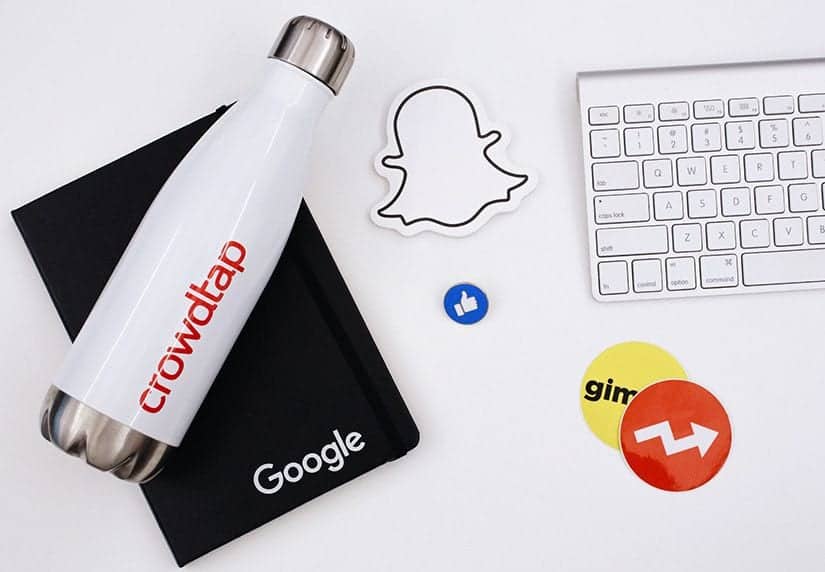Facebook: Put Your Money Where Your Mouse Is
Brands on Facebook have seen a declining number of posts reaching their network without paid influence. In the early days of brand pages, you could...
4 min read
Ken Schaefer : Dec 5, 2014


This article originally appeared on Social Media Today.
A few weeks ago, Facebook put the remaining nails in the coffin of brand advertisers’ ability to organically reach audiences. So now that it’s become a pay for play landscape, does that mean your brand should be shying away from Facebook advertising?
Absolutely not. Imagine if you’d never heard of Facebook, but a company came along today and said it could offer sophisticated ad targeting, measurement and tracking, at a frequency that ensured your brand would regularly be in front of your target audience. Would you pay to use it? We thought so.
Facebook’s recent changes are designed to help clean up users’ news feeds, which have become increasingly crowded with advertiser-supplied content. Facebook is aware of the delicate balance it maintains between its community and advertisers. It needs to ensure that the socialization and sharing of interests that brought users to Facebook is not drowned out by promotional content. This is particularly relevant as Facebook becomes a largely mobile medium and screen size further reduces the space available for content.
This is not all bad news for advertisers. Facebook is trying to ensure that advertisers focus more on quality than quantity. Tolling advertisers to promote their content is one way to ensure they do this. Facebook is also looking to reward relevancy with performance-based pricing, so more careful and considered targeting along with quality content is likely to be a win-win-win for advertisers, consumers, and Facebook alike.
We have heard some marketers say they are considering moving away from Facebook to other social platforms such as Instagram or Vine. We don’t think this is wise. These are good platforms for the right businesses, but it is only a matter of time before they change their rules to align with Facebook’s way of doing business (i.e. monetization).
So how can brands adapt?
1) Develop quality content and pay to promote it to the right audience
According to last year’s Expion F.A.V.E. 50 Social Retail Report, which analyzed the Facebook presence of the top 50 U.S. retail brands during the first half of 2013, compelling content is still king. Brands are more likely to get engagement on a few strong posts with gripping creative behind them rather than putting out a greater number of less powerful posts. We’ve seen the same trend among the CPG brands we work with. And yes, you do need to put money behind those posts. Otherwise they won’t be seen. If what you are developing is not worth putting money behind to ensure it will be seen, then maybe you need to re-examine your content strategy.
2) Leverage those hard-earned fans
In the past, a lot of Facebook marketing was focused on amassing fans. While fan count was never a good indicator of a brand’s success on Facebook, fans can make your ads more effective. When an ad has social context – in other words, when a person sees that their friend likes your business – your ads drive, on average, 50% more recall and 35% higher online sales lift, per Facebook. Building a large, loyal fan base composed of your best customers and prospects is a good way to ensure that when you do run ads, they are more likely to include the social enhancements that will drive their performance upward.
3) Think of Facebook, not TV, as a mass reach platform
One hundred million people log on to Facebook in the U.S. every evening between 8-11 p.m. This is larger than the audiences of the top 8 broadcast networks and top 5 cable networks combined. With more and more consumers moving toward online video consumption (not to mention skipping ads with DVRs), Facebook is positioned to capitalize on the social nature of online video. Already, they are serving up over a billon views per day and growing rapidly. There is also the near guarantee that Facebook will launch a more robust video platform in 2015. At BCM, we would argue that ads like this one or this one prove that video designed for the web can have the same, if not better, emotional resonance as the traditional TV spot.
4) Take advantage of the data
One big advantage Facebook has over other forms of advertising, and that is what we are discussing here, is the amount and availability of data that can be used to improve your efforts over time. There are a number of research providers that can tell you not only how your social-media advertising is affecting your key brand metrics, but tie this impact to actual, real-world sales as well.
5) Get the frequency right
RF, or reach and frequency, may be a little tired based on all of the new data that is available for digital marketers, but they still matter. Facebook provides another way to be in front of customers when other messages may be overlooked. Getting the frequency right is important to maximizing impact without negatively impacting your customers. Through various DataLogix studies, we’ve found that it’s more impactful to hit your target 1-2 times per week over a consolidated timeframe, rather than dribble out content consistently.
6) Measure. Optimize. Repeat
Marketers that want to succeed on Facebook need to adopt a few pages from the old direct marketing playbook. Have a clear measurement plan. What are the metrics that matter to you? These should be simple, clear, and readily available to everyone on the team. Monitor them and seek to improve them by trying smaller scale tests and scaling them up. You can play with targeting, message type, frequency, ad formats, etc. Once you find something that works, add it to your mix.
While weak marketers will bemoan the fact that Facebook is no longer the free lunch they once assumed it was, the smart marketer will work to maximize the unique and compelling opportunities that it presents as an advertising platform.
If you are a smart marketer that wants to discuss your efforts on Facebook and how to maximize sales, contact us. If you are a marketer that believes that there is still a free lunch to be had on Facebook, please, contact our competitors.

Brands on Facebook have seen a declining number of posts reaching their network without paid influence. In the early days of brand pages, you could...

Google has introduced a new feature for Gmail that automatically sorts email into different tabs. This new sorting method is part of a continuing...

Why does your brand need to be on Pinterest? Why not? As the social-media platform gets ready for a wide launch of its Promoted Pins feature, we can...